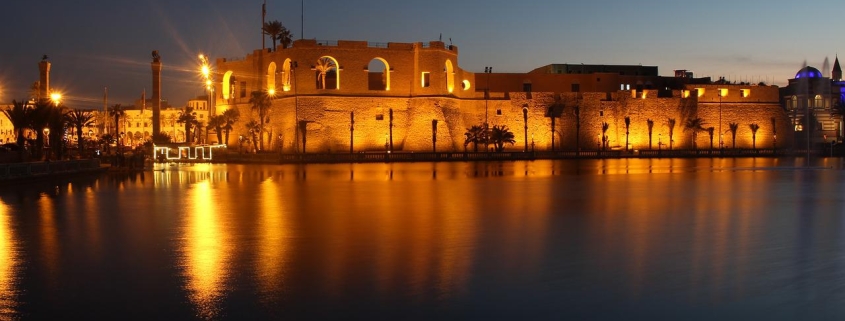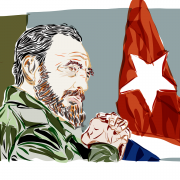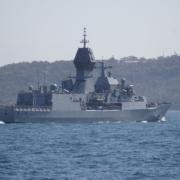What is the purpose of Tripoli Agreement?
Topic of Study [For H2 History Students]:
Paper 2: Search for Political Stability
Section B: Essay Writing
Theme I Chapter 2: Approaches to National Unity
Historical Background: Moro Muslim separatism
In May 1968, the Muslim Independence Movement (MIM) was formed in the wake of the ‘Corregidor Affair‘, in which the Philippine armed forces was being criticised for causing the killing of Moro Muslim soldiers for a secret operation to take over Sabah. The MIM aimed to lead political activities to create a separate Moro state in southern Philippines.
In October 1972, younger leaders of the MIM formed a splinter group known as the Moro National Liberation Front (MNLF) in Pulau Pangkor, Malaysia. They viewed the older Moro elites in the MIM as ineffective.
Conflagration: Martial Law of 1972
On 23 September 1972, President Ferdinand Marcos declared martial law, claiming that the growing violence between Christians and Muslims and the rise of an illegal separatist movement necessitated the use of authoritarian measures. In response, the Armed Forces of the Philippines (AFP) were deployed to suppress the Moro Muslim rebellions.
Within two months after the declaration of martial rule, in November 1972, the Moro National Liberation Front-Bangsa Moro Army (MNLF-BMA) launched a series of coordinated attacks on military outposts and announced to the world the struggle for independence of the Bangsa Moro. It declared the entirety of Mindanao, the Sulu archipelago and Palawan as the ancestral homeland of the Bangsa Moro. Its battlecry: “Victory or to the graveyard!”
An excerpt from “The Minoritization of Indigenous Communities of Mindanao and the Sulu Archipelago” by Rudy Buhay Rodil.
The MNLF operated from Malaysia and received military aid from abroad, notably Libya and Malaysia. One key figure of the MNLF, Hashim Salamat, made a personal visit to Libya and convinced the government to switch support from the MIM to the MNLF. Over time, more Moro rebels joined the MNLF, leading to the expansion of the separatist movement.
In 1974, the AFP led a major military operation to defeat the MNLF separatists. On the other hand, the MNLF stood their ground, receiving help from its external supporters. For instance, military advisors from Libya helped the MNLF to utilise guerilla tactics to oppose the AFP.
The Tripoli Agreement: An illusory peace?
In July 1975, the Organisation of the Islamic Conference (OIC) urged the Marcos government to reach a political settlement with the MNLF. The OIC is an inter-governmental organisation founded in 1969 to safeguard Muslim interests around the world and achieve peace and harmony.
On 23 December 1976, the Philippine government and the MNLF signed the Tripoli Agreement. It created the first autonomous region in the southern Philippines, including areas like Basilan, Palawan and Sulu. The Agreement meant to grant the autonomous government to have an executive council, legislative assembly, financial system and special regional security forces.
The Tripoli Agreement also benefited Marcos. The Philippine Armed Forces also badly needed a ceasefire. By approving an agreement which at first appeared to contain substantive concessions on his part, Marcos managed to reduce Islamic Conference pressure and even neutralize the Libyans, the MNLF’s strongest supporters. Moreover, Marcos held the power to implement the agreement as he saw fit.
An excerpt from “The Philippines Reader: A History of Colonialism, Neocolonialism, Dictatorship, and Resistance” by Daniel B. Schirmer and Stephen Rosskamm Shalom.
When the MNLF requested Marcos to implement the Tripoli Agreement by executive order, he submitted it to a referendum within the provinces that would be part of the newly-proposed autonomous region instead. On 17 April 1977, a majority of voters objected the Agreement.
Given that the Agreement failed to create a unified autonomous region led by the MNLF, the leaders ended talks with the Marcos government and rallied its members to resume guerilla attacks and demand complete independence. Notably, MNLF leaders Hashim Salamat and Nur Misuari left the group and established the Moro Islamic Liberation Front (MILF). Salamat asserted that the MNLF should have pursued the goal of creating an Islamic nation.
However, on 4 January the Philippine government announced that a referendum would be held in the southern provinces to ascertain which wanted to be autonomous; other areas could have their own referenda, so diluting the Muslim character of the south. Gaddafi did not like the sound of this, and the MNLF flatly rejected the idea of a referendum. To sweeten the pill Marcos promised a conditional amnesty for Muslim rebels in the south and then promulgated new laws for a Muslim court system. The fresh talks in Tripoli collapse, the Marcos envoy returned to Manila, and the MNLF threatened to resume hostilities; by now the Moros were demanding their own flag, their own army, and the incorporation of three Christian provinces (offering offshore oil and good farmland) into the Muslim area.
An excerpt from “Libya: The Struggle for Survival ” by G L Simons and Isaline Bergamaschi.
What can we learn from this article?
Consider the following question:
– Assess the political reasons that explain the rise of separatism in independent Southeast Asian states.
Join our JC History Tuition to learn more about the Approaches to National Unity. The H2 and H1 History Tuition feature online discussion and writing practices to enhance your knowledge application skills. Get useful study notes and clarify your doubts on the subject with the tutor. You can also follow our Telegram Channel to get useful updates.
We have other JC tuition classes, such as JC Math Tuition and JC Chemistry Tuition. For Secondary Tuition, we provide Secondary English Tuition, Secondary Math tuition, Secondary Chemistry Tuition, Social Studies Tuition, Geography, History Tuition and Secondary Economics Tuition. For Primary Tuition, we have Primary English, Math and Science Tuition. Call 9658 5789 to find out more.











